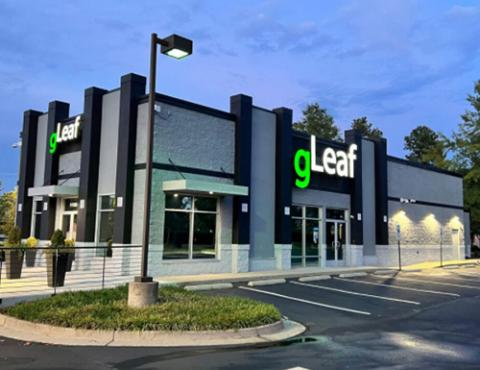Why you should not fear cannabis dispensaries in your shopping centers

People think of the cannabis industry within a 1970’s drug paraphernalia framework. They picture dirty, grungy, back-alley buildings when, in actuality, most of these stores are impeccably designed--comparable to a high-end Apple store.
Most cannabis dispensaries are bright and well-lit with attractive modern-looking displays. They’re wired with state-of-the-art security systems, so they tend not to bring any increase in crime to a center or area. They resemble retail medical clinics more than they do liquor stores and their clientele tends to represent the kind of strong demographics that retailers covet in outdoor or neighborhood centers. Many of their customers are highly educated and have high net worth (especially those of medical cannabis dispensaries).
Co-tenants of a plaza with a cannabis dispensary often benefit from the increase in traffic resulting from the dispensary. Most dispensaries post very strong store sales and bring significant and affluent traffic to a property. There is a plethora of co-tenants that could benefit from having a cannabis dispensary as a co-tenant in a property.
I and my partner in investments in Marcus & Millichap’s Fort Lauderdale office, Alan Lipsky, have tapped into the vast potential of the cannabis sector of commercial real estate. Our team is a leader in the retail market for exclusive listings and closings in Florida and many other states. As investors in dispensary commercial real estate, one of our biggest uphill battles can be overcoming negative perceptions other retail tenants have of them, but the truth is that they are often operated by experienced retail veterans from established and honored brands. The look of cannabis dispensaries has dramatically changed since the early days of legalization. From the eclectic to the elegant, dispensaries are now high-end establishments featuring innovative designs with an emphasis on wellness.
High-risk investment? Definitely not. We believe that the cannabis dispensary market is still in its early stages, but project that it will see massive growth over the next few years. According to the Leafly Jobs 2021 report, Florida is the third largest cannabis seller in the U.S., opening up more than 30,000 jobs and attracting 470,000 medical patients and $1.2 billion in sales in the business’s formative stages. The majority of dispensaries draw medium- to high-income individuals and the year-over-year growth generates additional traffic in the area, benefiting nearby co-tenants.
Since I left a commercial real estate law practice to join Marcus & Millichap in 2001, our team has closed on the sale of more than 665 individual properties across 41 states with a volume exceeding $1.95 billion. In the last 14 months, we have exclusively brought to market and closed deals on 31 cannabis dispensaries in four different states that are being operated by leading companies such as Trulieve Cannabis Corp., Curaleaf, Sunnyside, and Surterra Wellness.
We continue to expand our reach nationally though cannabis dispensaries can only operate in states in which cannabis is legally permissible (interestingly, it is federally illegal). A total of 18 states plus Washington, D.C., have legalized cannabis for both recreational and medical uses, while 26 other states have done so strictly for medical uses. California, Colorado, and Florida are considered three of the stronger markets based upon cannabis sales. New York is expected to become a booming markets as well, with dispensaries set to open in the coming year. While there have been many pushes to federally legalize cannabis sales, it appears that is still at least a few years off.
Our aggressive marketing campaigns of cannabis properties have enabled us to grow the buyer pool for cannabis real estate significantly. Over the past two years, we have presented these exceptional deals to individual investors and 1031 Exchange buyers. As a result, the buyer pool has been altered significantly, enabling us to achieve pricing not seen before in the cannabis sector. It is no longer unusual for us to have multiple offers on a cannabis dispensary we are marketing. Many investors that were previously uncomfortable investing in cannabis real estate have re-thought their approach and have decided to start doing so. These investors overcame their initial hesitancy by realizing the clientele for the dispensaries is not what they may have initially envisioned.





